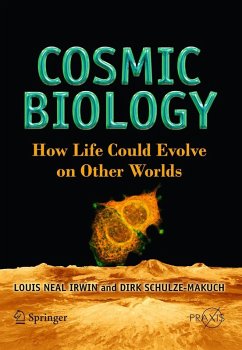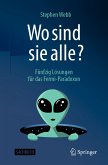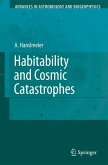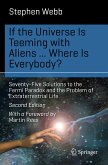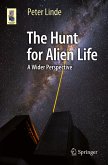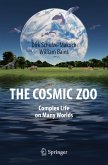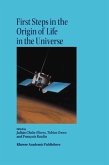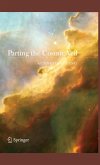This uniquely authoritative and imaginative book on the possibilties for alien life addresses the intrinsic interest that we have about life on other worlds - reinforcing some of our assumptions and reshaping others. It introduces new possibilties that will enlarge our understanding of the issue overall, in particular the enormous range of environments and planetary conditions within which life might evolve.
Cosmic Biology
-discusses a broad range of possible environments where alien life might have evolved;
-explains why carbon-based, water-borne life is more likely that its alternatives, but is not the only possiblity;
-applies the principles of planetary science and modern biology to evolutionary scenarios on other worlds;
-looks at the future fates of living systems, including those on Earth.
Dieser Download kann aus rechtlichen Gründen nur mit Rechnungsadresse in A, B, BG, CY, CZ, D, DK, EW, E, FIN, F, GR, HR, H, IRL, I, LT, L, LR, M, NL, PL, P, R, S, SLO, SK ausgeliefert werden.
"Cosmic Biology discusses the feasibility of life in the scorching cloud decks of Venus or within the volcanic violence of lo. ... This neat trick holds up a mirror to our own efforts at characterising the extrasolar planets we're now discovering. ... long data tables, information dense diagrams and sections that sometimes read like expanded bullet point lists gives the volume the feel of a textbook. ... a great book to push your horizons if you're already familiar with the themes of astrobiology ... ." (Lewis Dartnell, Sky at Night Magazine, August, 2011)
"The text, which is intended for nonscientists, are novel and distinctly important scientifically. ... The core of the book covers case history examinations of possible biological planets, moons, and exoplanets. For those who teach about the possibility of life on other planets, this book provides an excellent introduction to these alternative worlds and, in doing so, accomplishes more than the authors' modestclaims in the preface. Summing Up: Recommended. All levels/libraries." (P. K. Strother, Choice, Vol. 48 (11), July, 2011)

